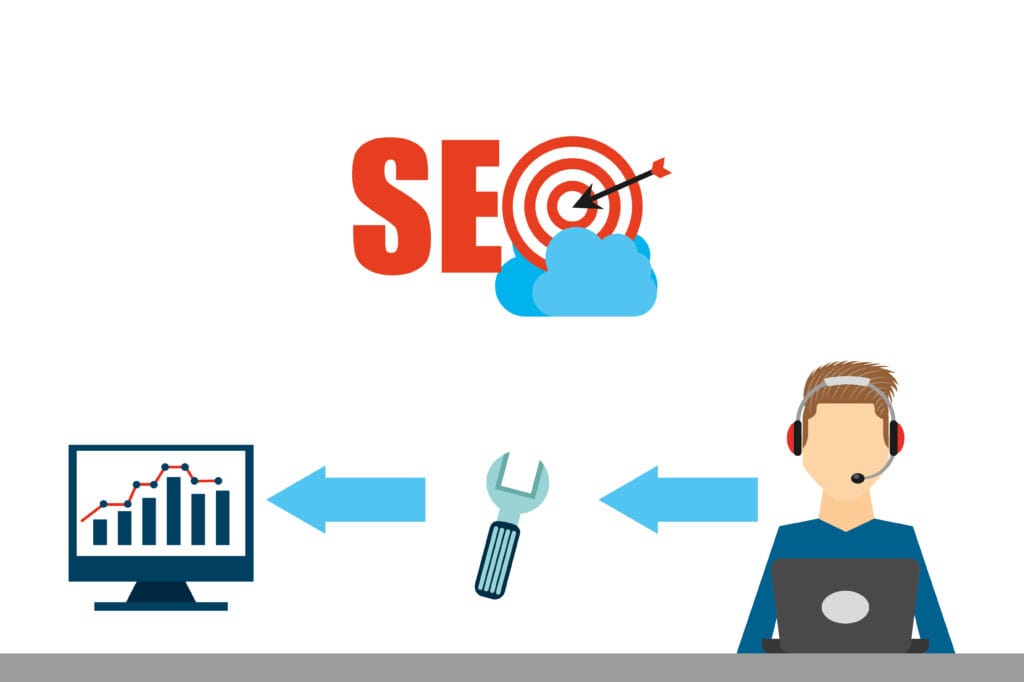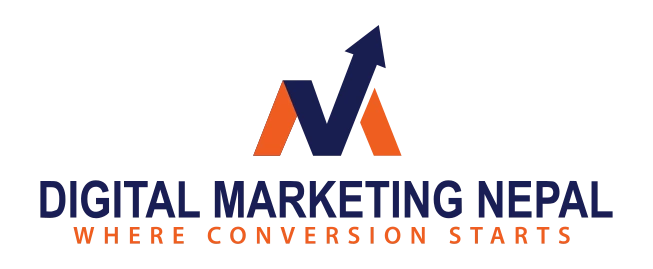In the rapidly evolving digital landscape of 2025, small businesses face the challenge of standing out in the competition. Effective search engine optimization (SEO) is no longer a luxury; it’s a necessity for business owners looking to enhance their online presence. This article will explore the best SEO tools for small businesses that leverage AI technology, providing small business owners with the insights and capabilities needed to thrive in a crowded marketplace.
Also Read : How to Build an Automation Template Library and Scale Workflows
Introduction to SEO Tools for Small Businesses

As we delve into the significance of SEO tools for small businesses, it becomes clear that in 2025, their importance cannot be overstated. With businesses striving to improve their online visibility, the right SEO strategies are crucial. SEO entails more than just achieving high rankings on search engines; it involves effectively reaching the target audience. With the rise of AI in search engines and the constant evolution of algorithms, small business owners must adapt their SEO efforts to ensure relevance and capture organic traffic. Furthermore, as local search results gain priority, understanding local SEO and its dynamics is vital for attracting nearby customers and fostering sustainable growth.
Importance of SEO in 2025
The landscape of digital marketing is shifting rapidly, making SEO an indispensable element for small businesses. In 2025, businesses are not just competing for higher rankings but are also focused on delivering personalized experiences to users. With AI driving search engine functionalities, the need for small business owners to engage in comprehensive SEO practices has become increasingly evident. Local SEO strategies are particularly crucial as they help businesses connect with their immediate community, enhancing foot traffic and customer loyalty. In this ever-changing environment, mastering SEO techniques is essential for capturing leads and ensuring long-term success.
Overview of AI-Driven SEO Tools
AI-driven SEO tools are reshaping the way small businesses approach optimization. These advanced tools utilize machine learning algorithms to analyze extensive datasets, offering valuable insights that can refine SEO strategies. For small business owners, such tools automate essential tasks like keyword research and on-page SEO optimization, allowing them to dedicate time to strategic planning and decision-making. Moreover, AI tools are skilled at predicting trends and user behaviors, giving businesses a competitive edge. As AI technology evolves, features like natural language processing and predictive analytics are becoming standard, enabling more effective content tailoring to user intent.
What Makes a Tool the Best SEO Tool?
Identifying the best SEO tools for small businesses involves understanding key characteristics that set them apart. Firstly, comprehensive keyword research capabilities are essential; these tools should aid users in discovering profitable keywords aligned with their audience. Secondly, effective content optimization features are critical for crafting content that ranks well while resonating with readers. Additionally, strong analytics and reporting functions are necessary for tracking SEO performance and deriving actionable insights. Integration with other marketing platforms is also a vital consideration, enhancing workflow efficiency. Lastly, user-friendliness is crucial for beginners, as intuitive interfaces and clear guidance enable effective navigation through the SEO process.
Top 7 Best SEO Tools for Small Businesses
1. SEMrush: Overview and Features
SEMrush is a standout among the best SEO tools available in 2025, particularly for small business owners seeking an intuitive interface. The tool’s robust keyword research capabilities allow users to uncover high-traffic keywords while also analyzing the competitive landscape. Additionally, it features content optimization suggestions grounded in real-time trends and best practice. It enhances the overall quality of content. With its site audit capabilities, SEMrush identifies critical technical SEO issues and provides actionable recommendations, ensuring small businesses can effectively elevate their online presence.
2. BrightLocal : How It Supports Local SEO
For small businesses aiming to improve their local presence, BrightLocal excels in local SEO strategies. The tool includes specialized features for local keyword tracking and citation management, enabling users to pinpoint relevant local keywords and monitor their performance in local search results. By offering insights into local competitors, businesses can better understand their market dynamics. Furthermore, BrightLocal’s integration with Google My Business ensures that small business owners can optimize their listings effectively, attracting more local customers and enhancing their visibility.
3. Surfer SEO: AI Capabilities and Optimization Techniques
Surfer SEO harnesses advanced AI capabilities, distinguishing itself from traditional SEO tools. Its machine learning algorithms analyze user behavior and evolving search trends, enabling the tool to provide personalized content creation recommendations. Additionally, predictive analytics features help small business owners anticipate changes in search algorithms, allowing them to adjust their strategies proactively. The AI capabilities also facilitate the generation of SEO-friendly content suggestions, ensuring businesses create relevant and engaging content that drives traffic and fosters user interaction.
4. Ahrefs: Audit Features and SEO Performance
Comprehensive audit features are a hallmark of Ahrefs, allowing small business owners to thoroughly assess their website’s SEO performance. The tool scans for common technical SEO issues, including broken links and slow loading speeds, which can hinder search engine ranking. It generates detailed reports that outline these issues alongside actionable recommendations for improvement. By tracking SEO performance over time, users can monitor key metrics such as organic traffic growth and keyword rankings, ultimately refining their SEO strategies for maximum impact.
5. Moz Pro: Best Practices for Beginners
Moz Pro is particularly friendly for beginners, offering a plethora of resources and best practices to guide them on their SEO journey. It includes step-by-step tutorials covering essential SEO concepts, from keyword research to on-page optimization strategies. The community forum fosters a collaborative learning environment where users can ask questions and share insights. Additionally, Moz Pro provides practical templates and checklists to simplify the implementation of SEO strategies, ensuring that beginners can stay organized and focused on achieving their SEO goals.
6. Ubersuggest: Keyword Research and Ranking
Keyword research is a core strength of Ubersuggest, making it one of the best SEO tools for small businesses. It offers access to an extensive database of keywords, complete with valuable metrics such as search volume and competition levels. This information empowers users to identify effective keywords for their content strategy. Furthermore, the tool tracks keyword rankings over time, enabling businesses to evaluate the effectiveness of their SEO efforts. With its user-friendly interface, even beginners can navigate the keyword research process with ease..
7. HubSpot: Comprehensive SEO and Workflow Integration
HubSpot provides a comprehensive SEO platform that integrates seamlessly with existing workflows, making it an invaluable resource for small business owners. It connects with various marketing tools and platforms, streamlining processes and enhancing collaboration across teams. By managing SEO efforts alongside other marketing activities, such as social media and email campaigns, businesses can ensure a cohesive approach to their digital marketing strategies. Customizable dashboards allow users to track performance metrics in real-time, facilitating quick adjustments to enhance overall SEO success.
How to Choose the Best SEO Tool for Your Small Business

Evaluating Your SEO Needs
When selecting the best SEO tool for your small business, it’s essential to evaluate your specific SEO needs. Consider factors such as your business goals, target audience, and current SEO challenges. For instance, if you are primarily focused on local SEO, look for tools that offer features tailored to enhancing local visibility. Additionally, assess whether you require comprehensive keyword research, on-page SEO optimization, or technical SEO capabilities. Understanding your unique requirements will help you choose a tool that aligns with your objectives and provides the necessary support for your SEO efforts, ultimately driving better ranking and search results.
Understanding Budget Constraints
Budget constraints play a significant role in selecting an SEO tool for small businesses. It’s important to consider not only the initial costs but also the potential return on investment. Many SEO tools available today offer tiered pricing structures, allowing users to choose a plan that fits their budget while still providing essential features. Furthermore, some tools offer free trials or freemium models, enabling businesses to test the tool’s effectiveness before committing to a subscription. By carefully evaluating your budget and the features you need, you can find an SEO tool that delivers value without straining your finances, ensuring that your SEO efforts remain cost-effective.
Trial Periods and Free SEO Tools
Utilizing trial periods and free SEO tools can be an effective strategy for small businesses exploring their options. Many reputable SEO tools offer limited-time trials that allow users to experience their features without financial commitment. This hands-on experience is invaluable for understanding how a tool fits into your workflow and meets your SEO needs. Additionally, there are numerous free SEO tools available that provide essential functionalities, such as keyword research and website audits. While these may not offer the comprehensive capabilities of paid tools, they can be a great starting point for beginners looking to enhance their SEO efforts and gain insights into their current performance.
Implementing SEO Tools for Maximum Effectiveness
Setting Up Your Audit Tool
Setting up your audit tool effectively is crucial for maximizing its benefits. Begin by configuring the audit tool to scan your website for common SEO issues, such as broken links, missing meta tags, and slow loading speeds. It’s essential to customize the audit settings to align with your specific goals, whether you’re focusing on technical SEO, on-page optimization, or content quality. Regularly schedule audits to monitor your website’s health and identify areas for improvement. By proactively addressing issues highlighted in the audits, you can enhance your website’s performance and search engine visibility.
Creating Effective SEO Workflows
Creating effective SEO workflows is key to streamlining your SEO efforts and ensuring consistent results. Start by defining clear objectives for your SEO strategy, such as increasing organic traffic or improving keyword rankings. Then, outline the specific tasks required to achieve these objectives, including keyword research, content creation, and performance tracking. Assign responsibilities to team members and establish timelines for each task to maintain accountability. Utilizing project management tools can help you organize your workflows and facilitate collaboration among team members. Regularly review and adjust your workflows based on performance metrics to optimize your SEO processes continuously.
Measuring SEO Success and Performance
Measuring SEO success and performance is essential for understanding the effectiveness of your strategies. Key performance indicators (KPIs) to track include organic traffic, keyword rankings, bounce rates, and conversion rates. Utilize analytics tools to gather data and generate reports that provide insights into user behavior and engagement. Regularly analyze this data to identify trends and areas for improvement, allowing you to make informed decisions about your SEO strategy. Additionally, setting specific goals and benchmarks will help you evaluate your progress over time, ensuring that your SEO efforts align with your overall business objectives.
Conclusion: Future Trends in SEO Tools and AI
Emerging Technologies in SEO
Emerging technologies are set to reshape the landscape of SEO tools in the coming years. AI and machine learning will play a pivotal role in enhancing the capabilities of SEO tools, enabling more sophisticated data analysis and predictive modeling. Additionally, advancements in natural language processing will allow tools to better understand user intent and optimize content accordingly. The rise of voice search and visual search technologies will also influence SEO strategies, prompting businesses to adapt their approaches. As these technologies evolve, SEO tools will become more intuitive and powerful, providing small businesses with the resources they need to succeed in a competitive digital environment.
Predictions for SEO Tools Beyond 2025
Looking beyond 2025, predictions suggest that SEO tools will increasingly integrate with other marketing technologies, creating comprehensive platforms for digital marketing management. This series will enable businesses to streamline their marketing efforts and gain deeper insights into customer behavior. Additionally, as privacy regulations continue to evolve, SEO tools will need to adapt to provide effective solutions while respecting user privacy. The emphasis on personalized search experiences will drive the development of tools that can deliver customized content recommendations based on user preferences and behavior. Overall, the future of SEO tools promises to be more interconnected, data-driven, and user-centric.
Final Thoughts on AI and Small Business SEO
AI is poised to revolutionize the way small businesses approach SEO, providing them with powerful tools to enhance their online visibility. By leveraging AI-driven insights, small businesses can optimize their content strategies, improve user experience, and stay ahead of competitors. However, it’s essential for businesses to remain adaptable and open to change as the SEO landscape continues to evolve. Embracing AI technology will not only enhance SEO efforts but also contribute to overall digital marketing success. Small businesses that invest in understanding and implementing AI-driven SEO tools will be better positioned to thrive in an increasingly competitive online marketplace.





0 Comments